Secret and unusual Sicily: 10 towns and sights off the beaten path
Far from the crowds and the usual archaeological sights and main cities, Sicily still reserves any number of hidden treasures. Smaller towns offering exceptional panoramic views and some of the most beautiful baroque architecture in the world, islands with an unusual history, amazing natural sights and other hidden gems.
1. Mozia
Mozia, also written Mozzia or Motya, is a small island with a very ancient history, situated in the Stagnone Lagoon in the province of Trapani. It is of particular archaeological interest, as it is the most important Phoenician settlement in the Mediterranean. The island was discovered by Mr. J. Whitaker in 1888, who started excavations searching for traces of the early settlers in Sicily. Today, the name Whitaker is mostly associated with the Whitaker foundation and wine-exporting company, famous for its Marsala wines. Whitaker’s 1921 book, Motya – A Phoenician Colony in Sicily, recounts his excavations.
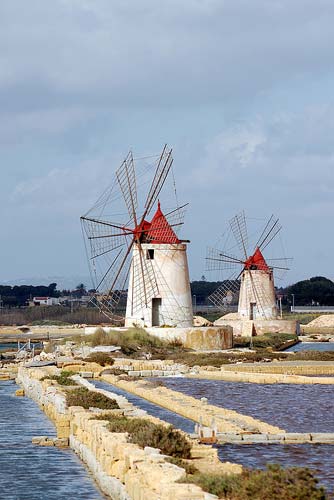
One of the famous sights of Mozia are its picturesque windmills, which were used to pump seawater into evaporation ponds, to make salt. The water would then evaporate under the effect of the searing temperatures and arid winds.
2. Erice
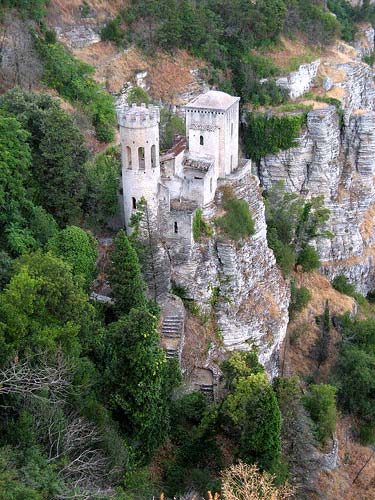
The town of Erice occupies a wonderful setting almost vertically above the sea at 750m/2460ft. Built by the Normans in the 12C, the Castello di Venere (Castle of Venus) was built on top of a rock on Monte Erice (Eryx hill), on the site of the Temple of Venus. It is from the Greek hero’s name, Eryx, that the town Erice derives its name. In Antiquity, the ancient Temple of Venus was very famous throughout the Mediterranean. The Pepoli Castle, dating from Saracen times, is located below. Stones from the ancient Temple of Venus were used to built the 14C Chiesa Matrice. The town center contains remains of ancient Elymian and Phoenician walls.
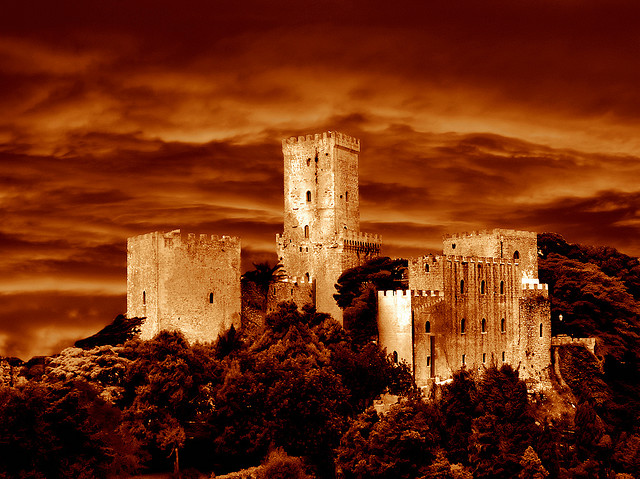
3. Gole dell’Alcantara
Situated below the slopes of the Etna, the Alcantara river canyon was formed by the erosional process of the Alcantara river on lava flows dating from an eruption in prehistoric times. Guided walks are organized and visitors can wade along the river bed (rubber boots can be hired) or follow marked trails through the impressive natural scenery. The unique natural environment can also be admired from the top, which can be reached on foot or by lift.
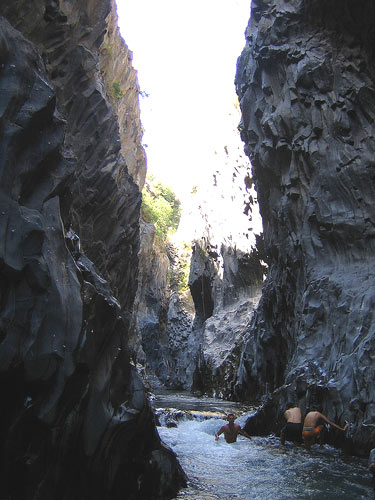
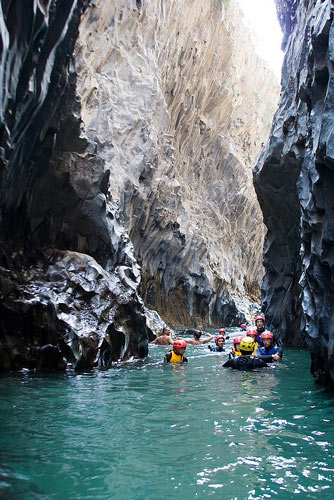

4. Modica
Modica actually consists of three towns: Modica Alta, the medieval town, Modica Bassa, the elegant town of the 1800-1900s and Modica Sorda, the modern part of the town with malls and modern buildings. The town boasts some of the most beautiful, Sicilian baroque architecture in Sicily.
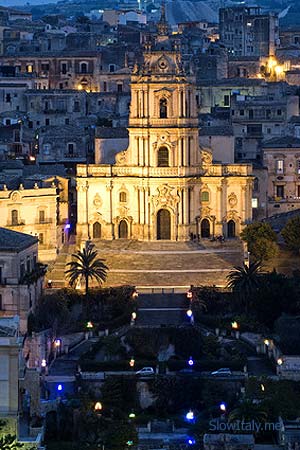
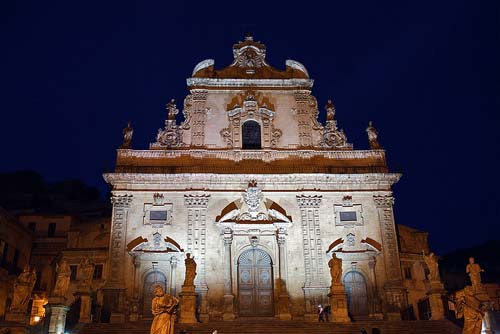
The town is famous for its chocolate, produced according to a special recipe that is said to date back to the 1500s, descending directly from the Aztec tradition brought to Sicily by the Spaniards. See: Italian towns for chocolate lovers.
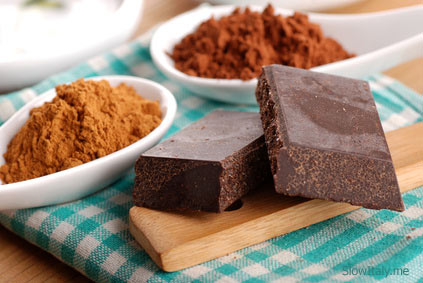
Modica is also the birth place of the poet Salvatore Quasimodo, Nobel prize winner of literature in 1959. See: Italian Nobel prize winners.
5. Ragusa Ibla
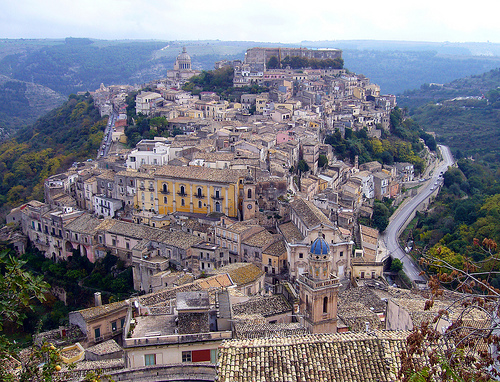
The town of Ragusa was rebuilt in two parts after the earthquake of 1693: Ragusa supra and Ragusa iusu or ibla. Ragusa Ibla, the older town district of Ragusa, was for a large part rebuilt in the Baroque style. The main sights include the Baroque church of San Giorgio and the church of San Giuseppe.
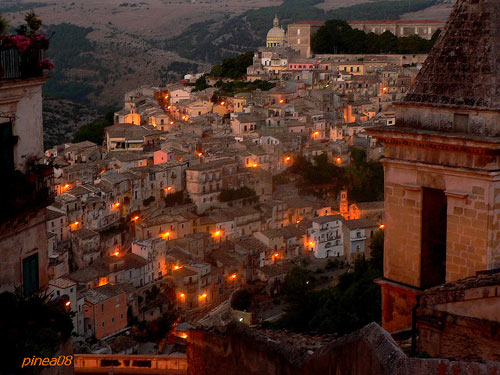
Several sights and monuments of Ragusa Ibla are featured in the Montalbano television series. See: In the footsteps of Inspector Montalbano.
Read more about Ragusa.
6. Monreale
Dominating the Conca d’Oro (Golden Basin) of Palermo, Monreale developed around the famous Benedictine abbey founded in the 12C by the Norman King William II.
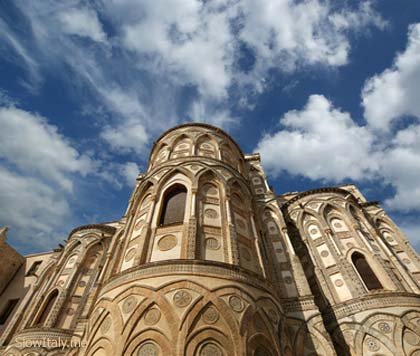
The Cathedral of Monreale is one of the greatest extant examples of Norman architecture in the world. Its oven vaults and walls are adorned with its wonderful 12C and 13C mosaics. Besides, the Duomo, the Ascent to the terraces and Chiastro are also worth a detour.
7. Ustica
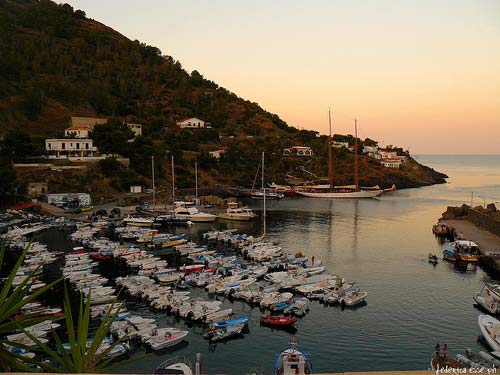
The small volcanic island of Ustica boasts beautiful bays, inlets and caves. One the characteristic features of the island is that the houses facades are covered with artistic murals, trompe-l’oeils and tiles depicting local scenes, portraits, and fanciful compositions. The island is a favorite destination among scuba divers. To preserve the fauna and natural marine environment around Ustica the area was declared Marine Protected Area (MPA) in 1987.
8. Caltagirone
Caltagirone is famous for its ceramics that adorn and enhance balconies, bridges, streets and the façades of the aristocratic palaces lining Via Roma in the town’s centre. The famous Scala di Santa Maria del Monte, a flight of 142 steps covered with enameled ceramic tiles is a highlight of the town. Each year, during the Scala Infiorita festival in May the steps are covered with flower pots. In Summer, on July 24 and 25, the steps are decorated with lanterns to celebrate the town’s patron saint San Giacomo. The view of the illuminated staircase offer an enchanting and charming spectacle at night. The town has been known for its ceramics since the Arab period in the 9th to 11th centuries. Read more: Caltagirone, the colorful capital of ceramics.
9. Enna
Nicknamed the ‘Belvedere of Sicily‘, Enna is located at the center of the island at an altitude of 942m/3090ft. Famous sights include the medieval Castello di Lombadia, one of the most impressive of Sicily, offering an exceptional panorama of the Etna and most of Sicily’s mountain peaks. Also worth seeing are the Torre di Federico and the Duomo.
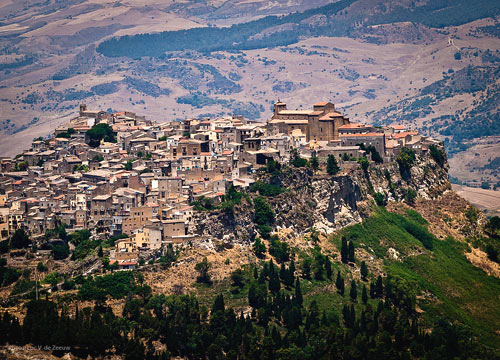
10. Capuchin catacombs of Palermo
The Catacombe dei cappuccini consists of 8000 mummies placed here from 17C to 19C, which have been impressively well preserved due to the very dry air. Originally the catacombs were intended as a burial place for friars, but with the time prominent people also came to be buried there. The last burials date from the 1920s. A two-year-old little girl was also buried here, the only one that was not mummified, but embalmsed using a special procedure, with left here virtually intact, as if she were asleep.
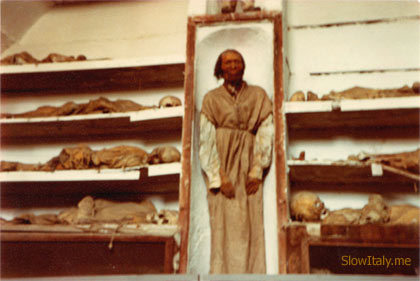
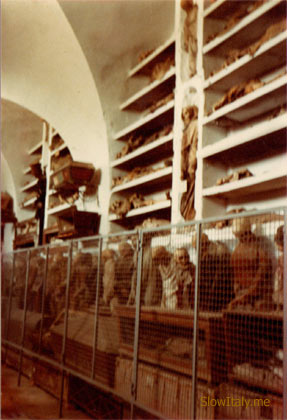
You might also like:
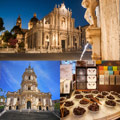
The baroque towns of the Val di Noto: a walk in Sicily’s flamboyant past
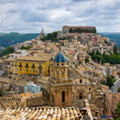
The art of slow travel in Ragusa Ibla
Camilleri’s Sicily from Siracusa to Agrigento: in the footsteps of inspector Montalbano
Our Top 5 favorite restaurants in South-Eastern Sicily
Caltagirone, the colorful capital of ceramics
Ode to a Sicilian icon: the Carretto Siciliano

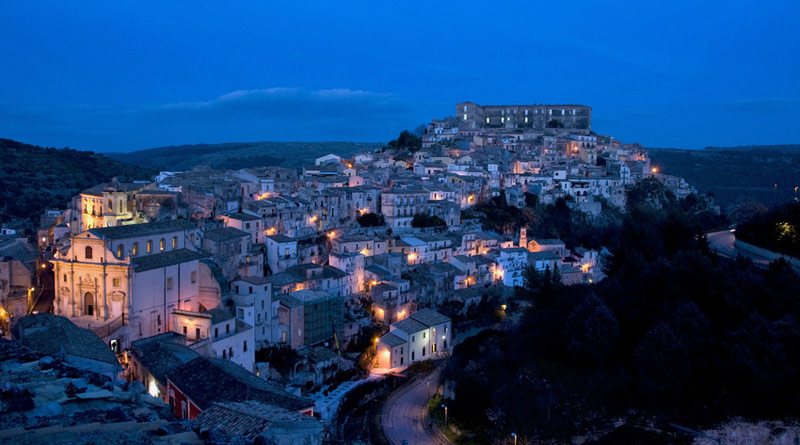
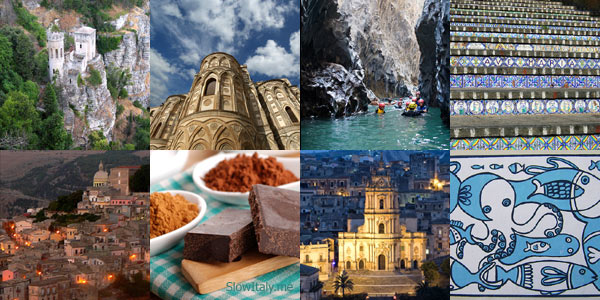


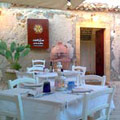
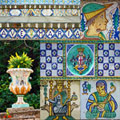
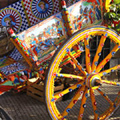

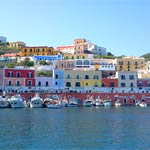

Just beautiful. Do you have any pictures of Mineo or where could I look. My grandmother was born there.
Will see if I can find any pictures of Mineo and if so, I’ll post them on our Facebook page.
My heritage is also from Mineo … I too would love to see some info and photo’s. Thx.
Your pictures are so beautiful they make me long to visit Sicily
Love this since, I’m Sicilian!
Beautiful photos and glimpses into the beautiful island of Sicily. As I’m Sicilian-American and still have family in Sicily, I have been to several of these places, but there are a few you’ve mentioned that I had never heard of before. Will need to check out on my next visit!
Thanks for your nice comment! Glad you liked the article and that you could still find new, unexplored ideas in it for your next visit to Sicily.
I have enjoyed all of your sites of Italy. My grandparents, Vincenzo & Marie Cantone lived in Caltabellolta, Sicily. Would you have any photos of that area and or a church. I am trying to finish my scrapbook of my grandparents. Thank you very kindly. Rose
Glad you enjoy our website. Thank you. Just posted a photo of Caltabellotta on our Facebook page. Feel free to download it.
Oh I love it too Ari!Having had inlaws who were 1st goteranien Sicilian-American and having visited Sicily myself, there is a fashion sense on that island that defies our American stereotype of a ‘backward’ ‘oldschool’ Sicilian. (We Americans think we’re such know-it-alls)Brava to Alessandra and her Mom for alerting us to this video! I’m going to give it a thumbs up on youtube!~ Susan
The Roman villa is indeed beautiful and very famous. It’s absolutely one of the Top 10 things to visit in Sicily. However, the idea of this article was more to highlight less known sights of Sicily, instead of the top 10 ones. But you gave me a great idea for a new article! Thanks so much for your feedback, Linda! ☼